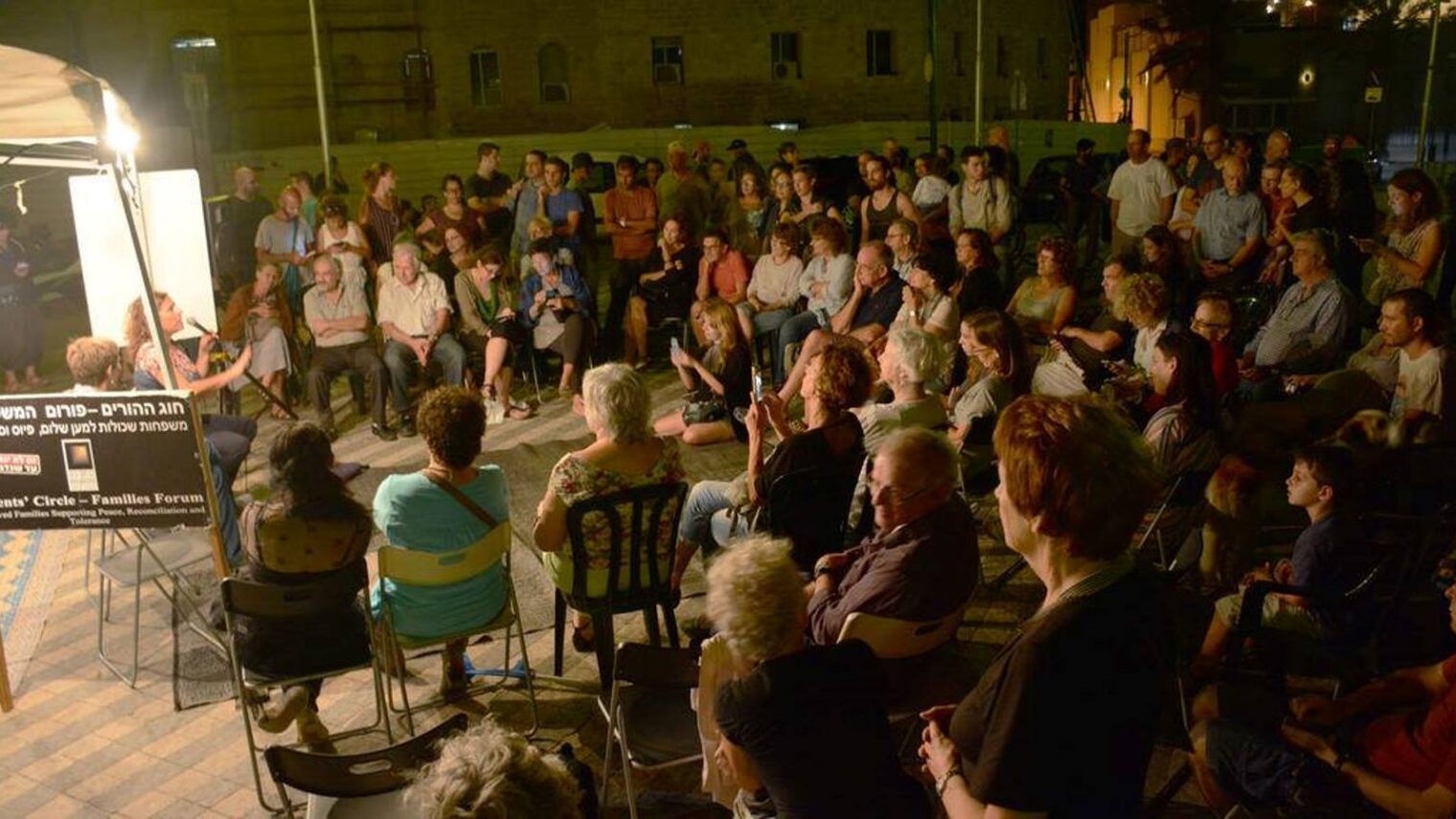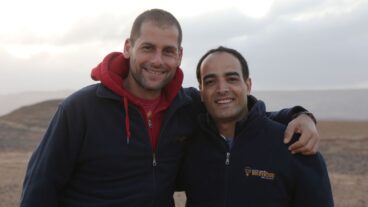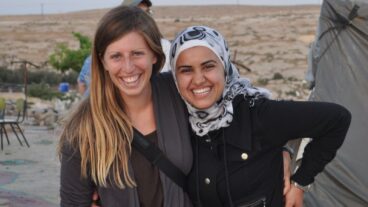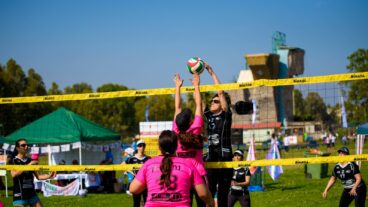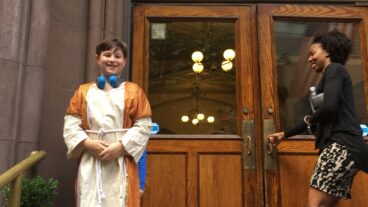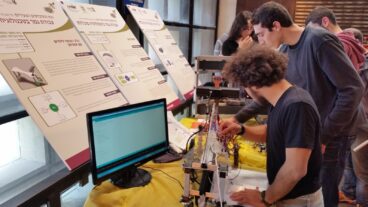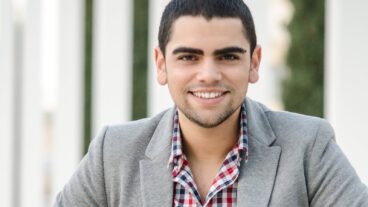ESSENTIAL QUESTION: How does one not give up hope even in times of despair?
Article originally titled: “In trying times, the will for peace still flickers.”
Here’s what you see in the headlines lately: A spate of stabbings and shootings across Israel, starting with the death of an Israeli motorist stoned by Palestinian terrorists on September 13, and escalating into daily terror attacks in multiple cities.
Here’s what you do not see in the headlines: Israeli Jews and Arabs, and residents of the Palestinian Authority-administered territories, quietly meeting in fellowship in multiple cities.
The get-togethers are sometimes sponsored by organized groups, such as MePeace, the Interfaith Encounter Association, 100 Thousand Poets for Change and Surfers 4 Peace. Sometimes they are impromptu gatherings in cafés and parks across Israel.
They do not agree on much except their desire to end the bloodshed.
The press all but ignored the Peace Square event last Saturday night in Jaffa. Organized by the Parents Circle Families Forum – a 20-year-old group of hundreds of Israeli and Palestinian families who lost a relative to the conflict – the outdoor event invited anyone to come and talk, and was meant to “bring our message of hope from the deep place of personal pain,” Parents Circle Israeli executive director Doubi Schwartz tells ISRAEL21c.
“We want Israelis to know there are Palestinians we can talk to, and Palestinians to know that there are Israelis they can talk to, and that it’s not our destiny to kill and be killed,” says Schwartz.
The forum held its first Peace Square last summer for 70 consecutive evenings in Tel Aviv during the Gaza conflict. During that time, about 3,000 additional people “liked” the forum’s A Crack in the Wall Facebook page in Hebrew and Arabic, including 300 Gaza residents.
“When this round of conflict started, we felt it was important to go out again, and Saturday evening hundreds of people came on the Jaffa promenade,” reports Schwartz. “Many people, Jews and Arabs, took the microphone to tell their stories, express fears and give hope. We will do it again next Saturday.”
Yovav Kalifon of Tiyul-Rihla (“trip” in Hebrew and Arabic, respectively) is hoping not to have to cancel the next outing of the organization, a four-year-old dialogue and learning program under the umbrella of the Center for Emerging Futures. Tiyul-Rihla brings Palestinians and Israelis on overnight tours around the country to expose one another to the historical narrative and cultural identity of the other.
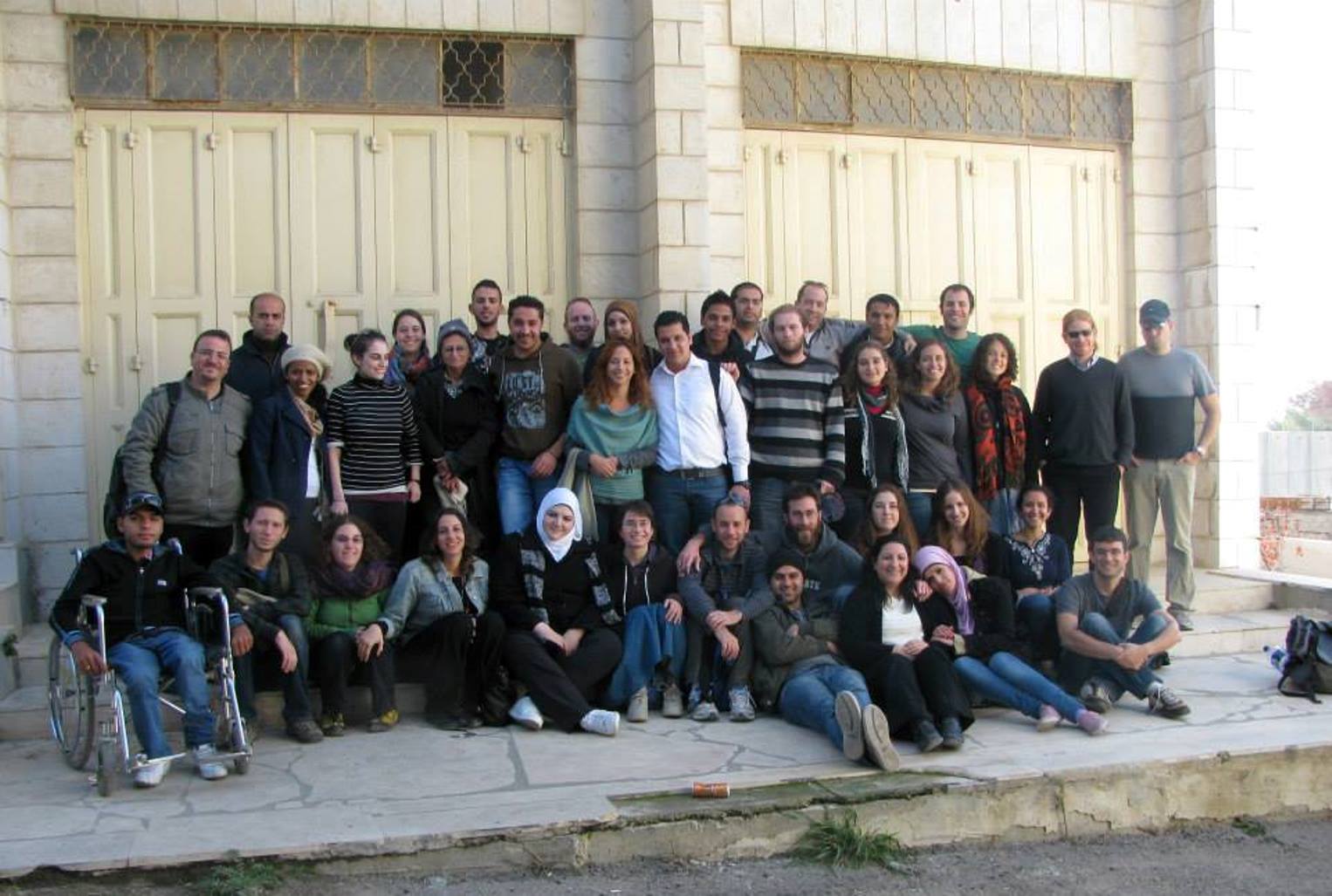
Kalifon tells ISRAEL21c he already decided to take Jerusalem and Jaffa off the itinerary for October 15-16, given the unrest. If the trip goes on as planned, he expects about 10 people from each side, roughly half the usual number.
Stressing that “our program is educational, not political,” Kalifon concedes that Tiyul-Rihla “is a real drop in the ocean since there is so much hatred and fear and violence drowning out the other voices. But those who show up to our events have their point of view challenged and the participants will hear the news and follow events differently afterward. We need to keep building those connections.”
Fears and miracles
Leaders involved in interfaith and coexistence* programs in Israel tell ISRAEL21c that a major obstacle is Palestinian fear of making their participation public. If fellow Arabs find out they are meeting with Israeli Jews, especially those from disputed territories, they can lose their job and their credibility on the street, and can even face grave physical danger if they are labeled “collaborators” with the Israelis.
“That is what is killing the peace initiative,” according to Kalifon.
Dalia Eshkenazi Landau, who runs ongoing coexistence and interfaith programs at Open House Ramle, reports that “It has become harder to bring Jewish and Arab adults together … due to loss of hope [but] this is not the case with children and teenagers.” Last May, 30 high school students from a Jewish school and an Arab school participated in Masa-Masar (“journey” in both languages) for four days.
“While every encounter between Jews and Arabs takes an enormous amount of effort to bring about, that it happens we consider a miracle,” says Landau.
Yehuda Stolov, founder and director of the Interfaith Encounter Association – which runs ongoing interfaith groups from the Upper Galilee to Eilat — tells ISRAEL21c that some of the groups are having trouble meeting these days, because of fear or due to logistical problems caused by tightened security.
“But the commitment to continue building relationships has not changed. I have been approached by a few new people, both Jews and Muslims, who say, ‘We heard about your organization and right now everything seems so crazy, and we feel an urge to do something to build an alternative to this craziness,’” says Stolov, a Jerusalem resident.
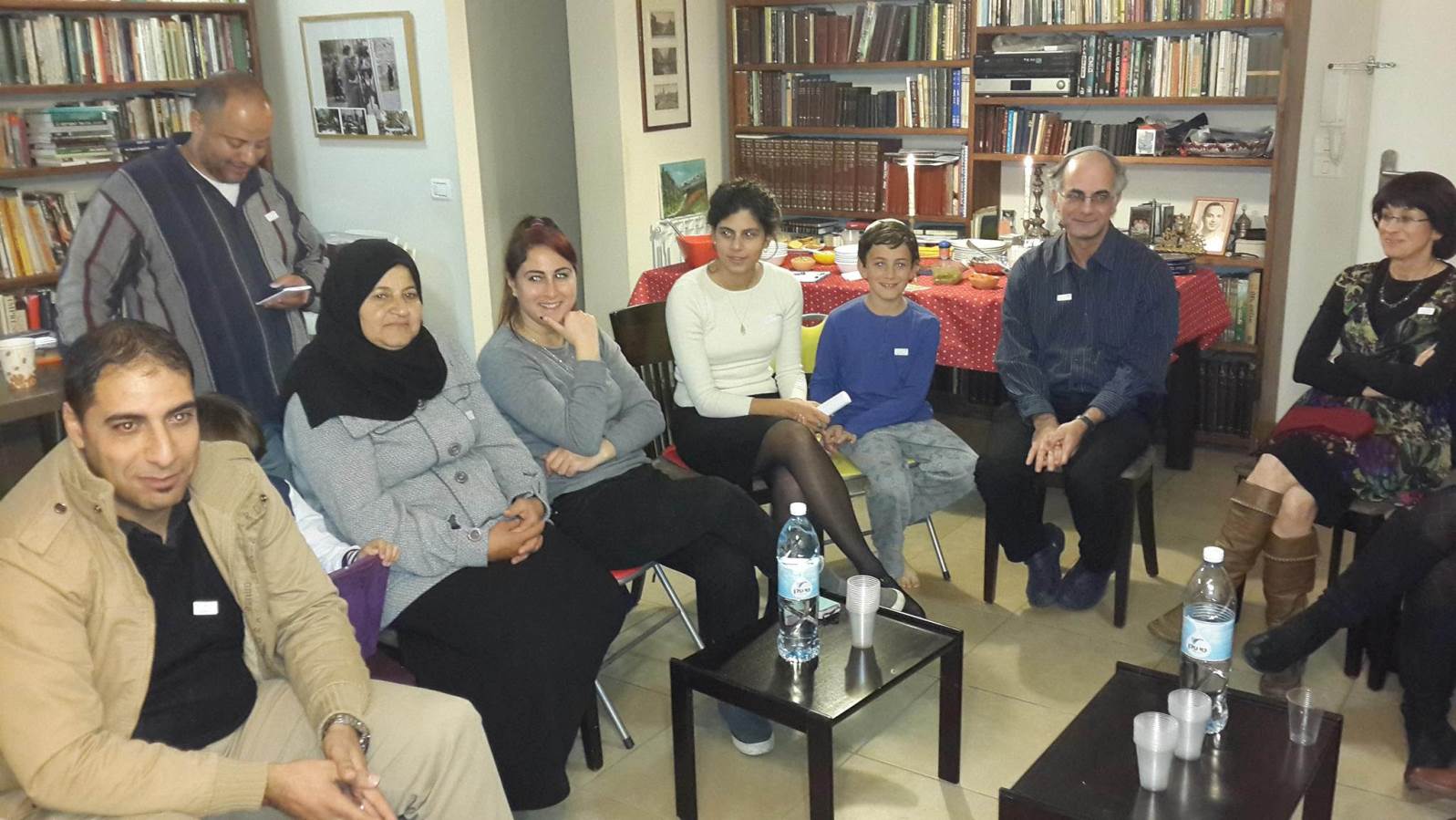
“In general, everyone already involved keeps stressing the commitment to continue the process as soon as possible,” Stolov says. “There were places where there were clashes between neighboring communities and we had a dialogue group that was able to reduce the tensions. Sometimes there is an opportunity like this when people are connected to power points in the community, but mostly the role of the groups is to build long-term relations. And the stronger and wider they are, the more likely it is that the mere existence of the group will prevent violence.”
Similarly, Eyal Raviv of the MePeace online and in-person social network reports “a real desire among the grassroots that our work is the solution, especially at a time like this, although there is so much distrust in the air. If top-down is not working, we need to make peace bottom-up.”
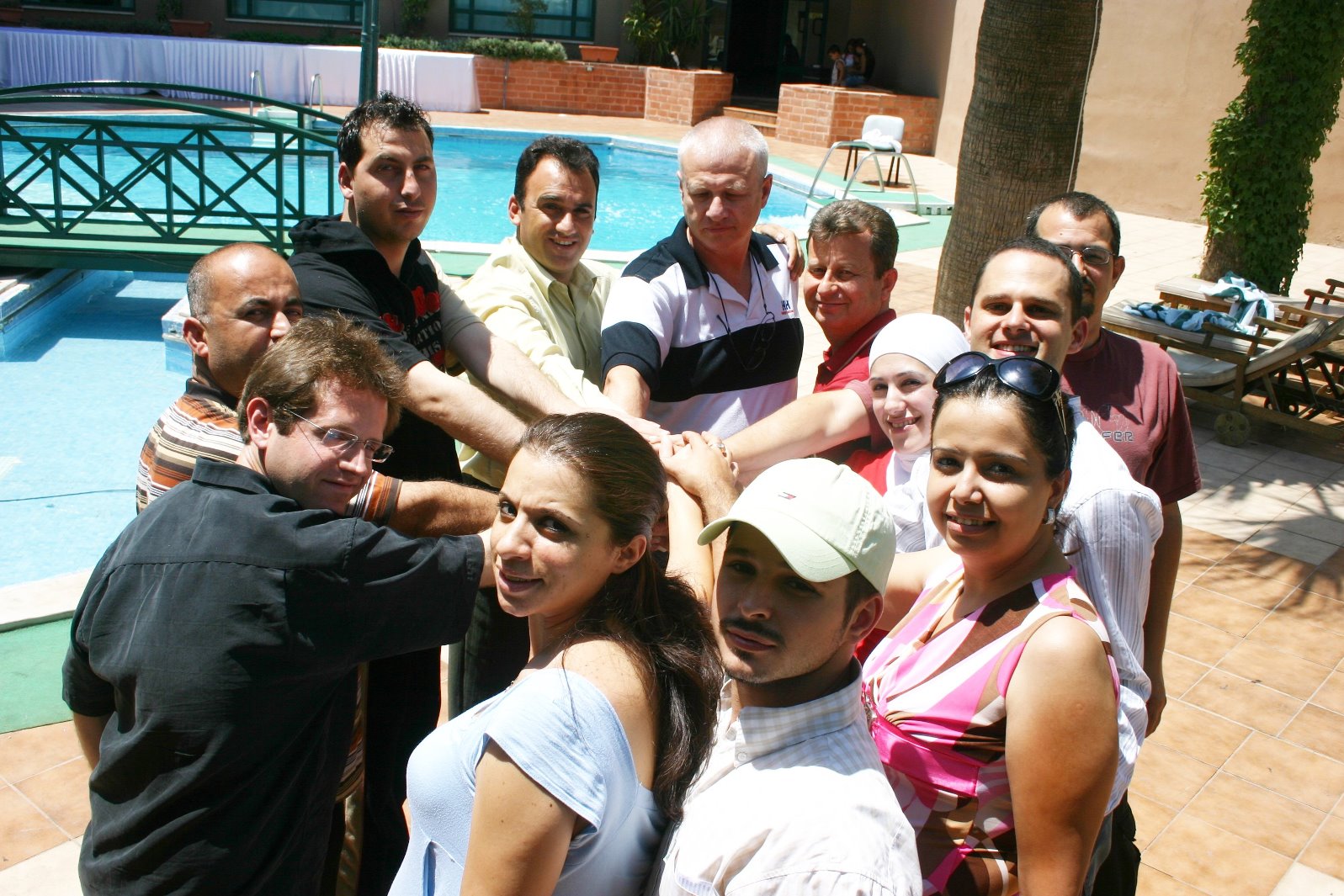
Raviv tells ISRAEL21c that while everyone is wondering how long the wave of terror will last and whether there be another war, “With that comes the question of ‘What do we do?’
“From my experience at MePeace, I believe that in trying times we must come together and enable dialogue online and on the ground. We need to expand the circle of moderates. These gatherings in challenging times also help support hope for peace and remind people they are not alone.”
*KEY WORD – Coexistence – to live in peace with another or others despite differences. Seeds of Peace has been doing coexistence work for 22 years.
What other organizations are doing coexistence work? Are you interested in learning more? Join other educators in a conversation on the Educators21c Facebook page.




